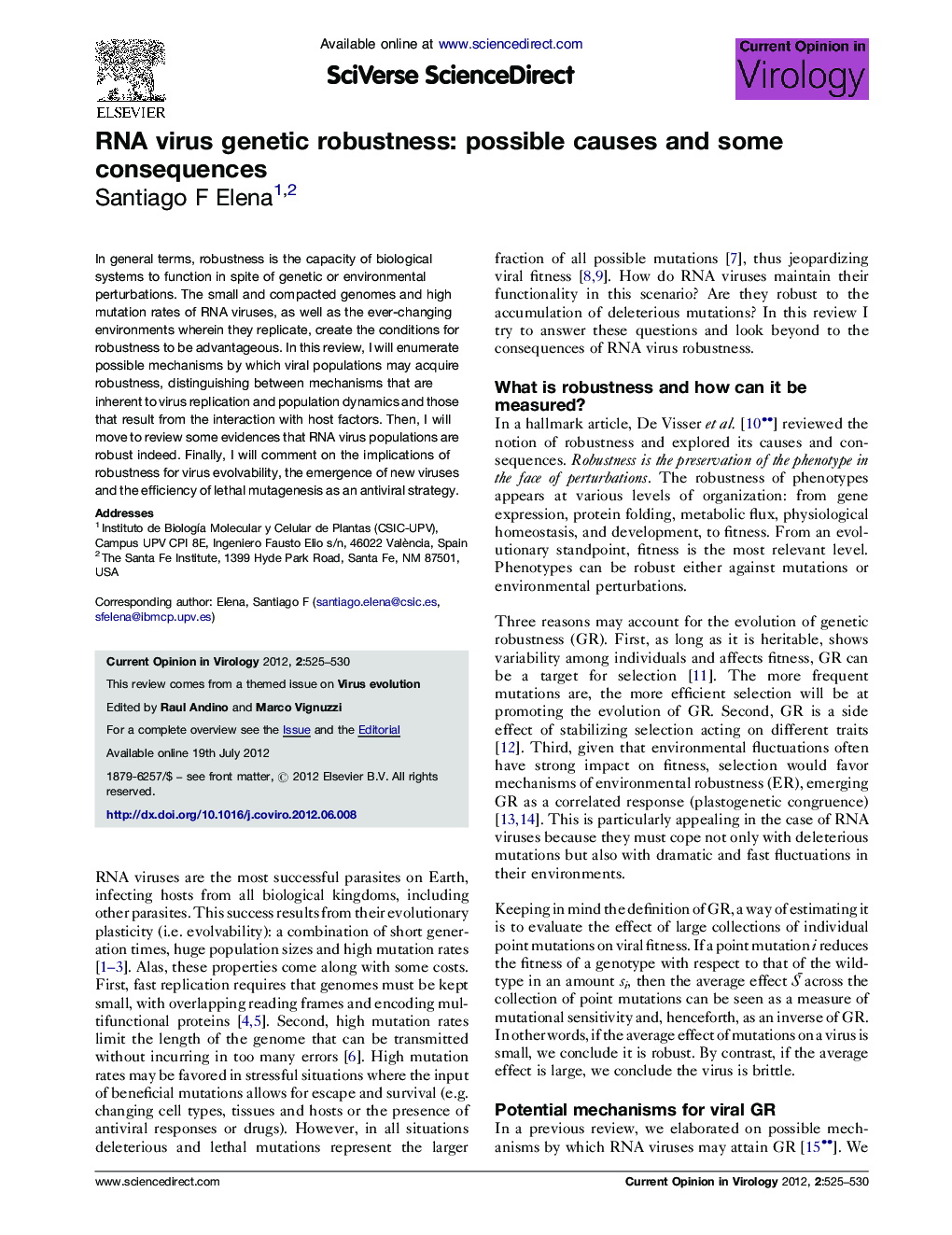| Article ID | Journal | Published Year | Pages | File Type |
|---|---|---|---|---|
| 5806911 | Current Opinion in Virology | 2012 | 6 Pages |
In general terms, robustness is the capacity of biological systems to function in spite of genetic or environmental perturbations. The small and compacted genomes and high mutation rates of RNA viruses, as well as the ever-changing environments wherein they replicate, create the conditions for robustness to be advantageous. In this review, I will enumerate possible mechanisms by which viral populations may acquire robustness, distinguishing between mechanisms that are inherent to virus replication and population dynamics and those that result from the interaction with host factors. Then, I will move to review some evidences that RNA virus populations are robust indeed. Finally, I will comment on the implications of robustness for virus evolvability, the emergence of new viruses and the efficiency of lethal mutagenesis as an antiviral strategy.
⺠Experimental evidences suggest that viruses may have evolved robustness mechanisms. ⺠Virus populations are robust at the cost of individuals being fragile. ⺠Genetic robustness evolves linked to environmental robustness. ⺠Genetic robustness affects virus evolvability. ⺠Robustness does not play a substantial role in lethal mutagenesis.
